In the realm of floral enchantment, few blossoms evoke the sense of ethereal beauty and serene elegance quite like the Siberian Larkspur. With its striking hues of blue dancing amidst verdant foliage, this captivating flower commands attention and admiration wherever it blooms.The Siberian Larkspur, scientifically known as Delphinium grandiflorum, is native to the Siberian regions of Asia, where it thrives in cool, temperate climates. Found in meadows, grasslands, and mountain slopes, this resilient flower graces landscapes with its vibrant presence, often carpeting vast expanses with its azure blooms. Its ability to endure harsh winters and flourish in well-drained soil makes it a beloved addition to gardens and natural habitats alike.
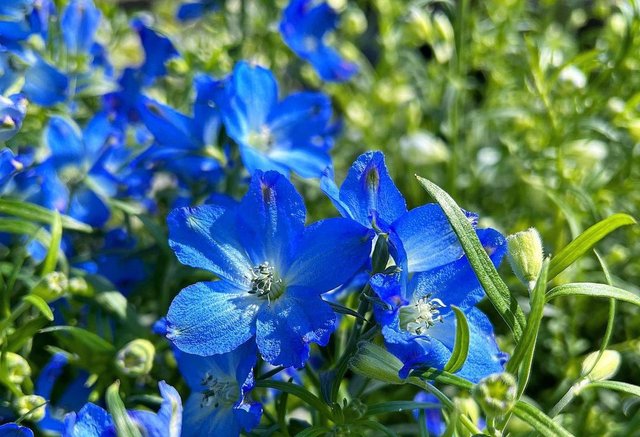
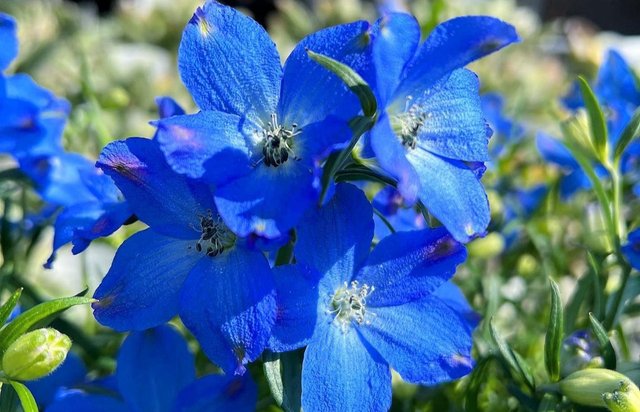
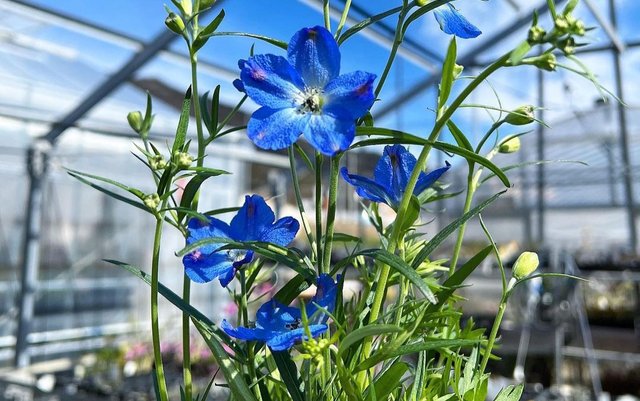
What distinguishes the Siberian Larkspur is its majestic stature and exquisite floral display. Towering spikes adorned with numerous spurred blossoms rise above the foliage, creating a spectacle of color and form. The flowers, ranging in shades from pale sky blue to deep indigo, boast delicate petals accented by contrasting centers, drawing pollinators with their intricate allure. The finely lobed leaves add to the plant's charm, providing a verdant backdrop to the celestial blooms.
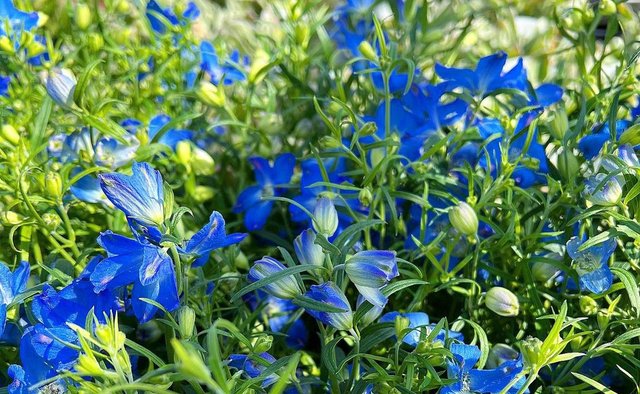
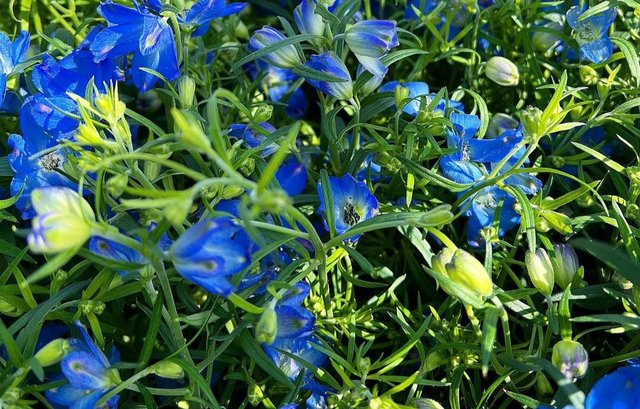
Beyond its aesthetic appeal, the Siberian Larkspur plays a vital role in supporting biodiversity and ecosystem health. As a nectar source for pollinators such as bees, butterflies, and hummingbirds, it contributes to the intricate web of life that sustains our natural world. Additionally, its deep taproot helps improve soil structure and prevent erosion, making it a valuable asset in conservation efforts aimed at restoring fragile habitats.